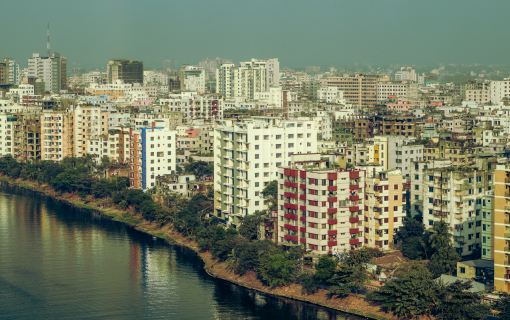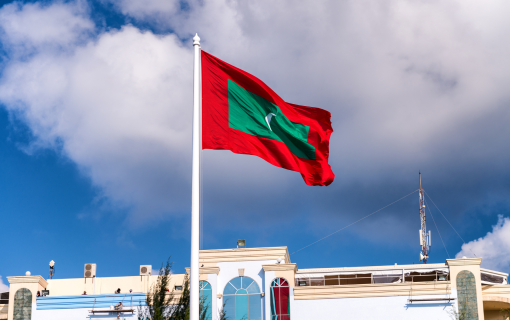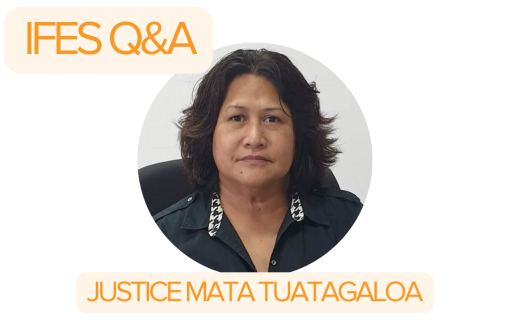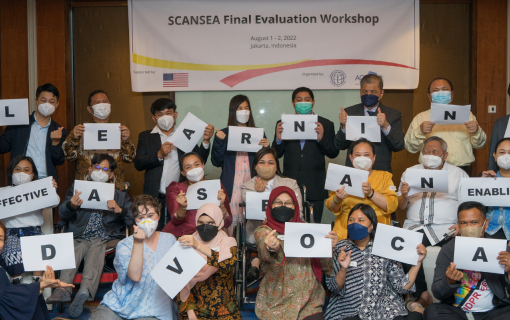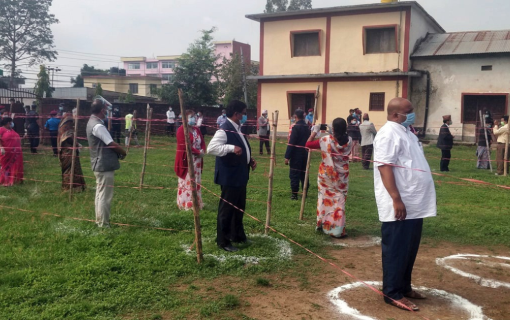Elections in Timor-Leste: 2023 Parliamentary Elections
On May 21, Timor-Leste voters will elect 65 representatives in the National Parliament. The legal framework for the 2023 parliamentary election is substantially the same as for the early parliamentary election of May 12, 2018. The members of the National Parliament are elected using a proportional representation closed list electoral system.
Since 2001, the International Foundation for Electoral Systems (IFES) has been a critical partner in strengthening the development of Timor-Leste’s electoral sector. IFES conducted programming around the 2004–2005 local elections, 2017 parliamentary elections, 2018 early elections, and 2022 presidential elections. Ahead of this important electoral process, IFES provides Frequently Asked Questions (FAQs) on Elections in Timor-Leste: 2023 Parliamentary Elections.
Frequently Asked Questions (FAQs)
On February 13, 2023, the president of the Republic of Timor-Leste announced that a parliamentary election for the country would be held on May 21, 2023.
The legal framework for the 2023 parliamentary election is substantially the same as for the early parliamentary election of May 12, 2018.
In 2021, two laws regarding the electoral processes were amended: Law 6/2016 on Voter Registration and Law 5/2006 on Election Management Bodies. There have been no changes to Law 6/2006 on Elections of the National Parliament, Law 3/2004 on Political Parties, or Law 6/2008 on Financing of Political Parties. Nor have there been changes to the government regulations on voter registration (Decree 12/2016); submission of candidate lists (Decree 16/2017); oversight, observation, and media coverage of the election (Decree 17/2017); election campaigns (Decree 18/2017); out-of-country voting (Decree 19/2017); or the organization and operations of polling centers and voting, vote counting, and tabulation of results (Decree 21/2017).
In February 2023, Parliament passed an amendment to Law 6/2006 on Elections of the National Parliament. After the president vetoed the amendment on March 13, Parliament voted to confirm it and sent it back to the President for compulsory promulgation, as permitted by the Constitution. However, despite the government’s claims to the contrary, the confirmation vote did not meet the constitutional requirements. After a short dispute, the government acquiesced to the President’s refusal to promulgate the amended law.
The proposed amendment would have significantly changed voting procedures late in the electoral cycle. Prominent among these were the introduction of postal voting for out-of-country voters and increased assistance for voters with disabilities, including the provision of braille ballot paper templates in polling stations. The proposed amendment also would have brought the Law on Elections of the National Parliament in line with the provisions of the Law on the Election of the President.
As a result of the veto, some reforms to electoral processes implemented for the 2022 presidential election will not be in place for the 2023 parliamentary election. For example, there will be no parallel voting centers in Dili, where voters registered in other areas of the country could vote; journalists on duty will not be able to vote where they are stationed on Election Day; the National Election Commission (Comissão Nacional de Eleições, CNE) will not be required to recheck all null and void ballots sent to the national tabulation center. There will also be several other minor differences.
Timor-Leste’s two election management bodies are the National Election Commission (Comissão Nacional de Eleições, CNE) and the Technical Secretariat for Electoral Administration (Secretariado Técnico de Administração Eleitoral, STAE).
The CNE is an independent body comprising seven commissioners appointed to five-year terms. Commissioners may be reappointed once. The president of the Republic of Timor-Leste appoints one member; the National Parliament appoints three (one of whom must be a woman); the government appoints one; and one is elected from among judicial magistrates and one from among public prosecutors. The National Parliament then elects one member to serve as the president of the CNE. Currently, one member is a woman.
The CNE’s primary task is supervising the STAE’s work to ensure that constitutional and legal norms are followed and citizens are treated lawfully and equally. The CNE also verifies the voter register database and ensures that political contestants are free to campaign. The 2021 amendment to the Law on Election Management Bodies gave the CNE the power to issue opinions on the government’s implementation of decrees issued under the authority of electoral laws and to approve codes of conduct issued by STAE. The CNE supervises the municipal-level tabulation of election results and compiles a provisional national results tabulation for the Supreme Court’s review. It handles procedural complaints and notifies the public prosecutor of apparently illegal electoral acts. The CNE also provides civic education programs.
The STAE is a government body within the Ministry of State Administration, led by a civil servant with the rank of director general. The STAE is responsible for implementing all electoral activities. This includes drafting electoral regulations, compiling and managing the voter register, disseminating electoral information to voters, procuring electoral supplies and equipment, administering voting, counting ballots and municipal-level tabulations of votes, and conducting out-of-country voting.
The members of the National Parliament are elected using a proportional representation closed list electoral system. The entire territory of Timor-Leste (including any votes cast abroad) serves as a single electoral district. Political parties or coalitions of parties must receive at least 4 percent of total valid votes to be included in the distribution of seats in Parliament.
Of the 65 members of the National Parliament, 26 are women. The term of office for members of the National Parliament is five years, divided into five 12-month legislative sessions.
The Constitution of Timor-Leste provides that if a Parliament is dissolved during a legislative session, as was the case in 2018, the remaining portion of that session is added to the term of office of the subsequently elected Parliament. However, the Constitution also states that Members of Parliament serve for fixed five-year terms. The president relied on the latter provision, setting May 21, 2023, as the Election Date. The current government initially opposed the date, stating that, considering the remainder of the legislative term from 2018, the election should be held in late July or August. This claim did not attract widespread support, and the opposition to a May 2023 election date soon subsided.
Candidates must be citizens of Timor-Leste, 17 years or older, and included on the voter register. Citizens who hold certain positions—such as judicial officers, civil servants, defense and police force members, ministers of religion, diplomats, and members of the National Election Commission—are disqualified from candidacy. All candidates must be included on the candidate list of a political party or coalition. A candidate may not be included on more than one candidate list.
Each candidate list must contain 65 primary and 25 supplementary candidates. At least one out of every group of three persons on each candidate list must be a woman. The order in which a political party or coalition places candidates’ names on the list it submits is in which any seats won by the political party or coalition are filled. Seats are allocated according to the highest average system using the d’Hondt method. Parties and coalitions that receive less than 4 percent of total valid votes are not entitled to seats. The list is in effect for the term of office of the National Parliament. An elected Member of Parliament who resigns or no longer has a mandate is replaced by the next available candidate on the relevant political parties or coalition’s candidate list. If the list of primary candidates is exhausted, any vacancies are filled by supplementary candidates, following the sequence on that list.
Each political party registered with the Supreme Court that has contested an election within the past five years was eligible to submit a single candidate list for the election by March 15, 2023. A coalition of political parties may also submit a single candidate list for the election. Political parties that intended to form a coalition to contest the election were required to register the coalition with the National Election Commission (Comissão Nacional de Eleições, CNE) no later than March 5.
On March 29, 2023, the plenary of the Court of Appeal validated the final list of 17 political parties that are candidates for the Timorese legislative elections on May 21. The only newcomer to the list is Partido Os Verdes de Timor, registered last year. Only seven of the 17 competing parties currently have parliamentary representation:
- Frente Revolucionária do Timor-Leste Independente (23 deputies);
- Congresso Nacional de Reconstrução de Timor-Leste (21);
- Partido da Libertação Popular (eight);
- Kmane Haburas Unidade Nacional Timor Oan (five);
- Partido Democrático (five);
- União Democrática Timorense (one); and
- Partido Unidade e Desenvolvimento Democratica (one).
Frente Mudança, which holds one seat in the current Parliament, submitted two candidate lists from warring factions within the party; the Court of Appeal rejected both. There are no pre-election coalitions, as the Court of Appeal rejected the three coalitions approved by the National Election Commission (Comissão Nacional de Eleições, CNE). Each legally qualified party within those coalitions had a brief opportunity to lodge its own candidate list. The ballot paper order is as follows:
- Partido Desenvolvimento Nacional (PDN)
- Partido Liberta Povo Aileba (PLPA)
- Partido da Libertação Popular (PLP)
- Partido Democrático (PD)
- Kmane Haburas Unidade Nacional Timor Oan (KHUNTO)
- Partido Os Verdes de Timor (PVT)
- União Democrática Timorense (UDT)
- Partido Unidade e Desenvolvimento Democratica (PUDD)
- Partido Republicano (PR)
- Unidade Nasional Democrática da Resistência Timorense (UNDERTIM)
- Frente Revolucionária do Timor-Leste Independente (FRETILIN)
- Congresso Nacional de Reconstrução de Timor-Leste (CNRT)
- Centro Ação Social Democrata Timorense (CASDT)
- Movimento da Libertação do Povo Mau Bere (MPLM)
- Partido Socialista de Timor (PST)
- Partido Democrata Cristão (PDC)
- Associação Popular Monarquia Timorense (APMT)
Political parties and coalitions may campaign for election for 30 days between April 19 and May 18. The National Election Commission (Comissão Nacional de Eleições, CNE) oversees the conduct of the election campaign. Following advice from the parties, the CNE issued an initial campaign schedule on April 14, defining where and when each political party or coalition will hold campaign events.
Citizens of Timor-Leste who are at least 16 years of age may register to vote. However, a person is not included in the voter register for an election unless they are at least 17 on Election Day. While the Law on Election of the National Parliament does not disqualify citizens from registering to vote based on sentencing by a court or a mental disability, Decree 21/2017 bars from polling stations persons who are “publicly known as mentally ill.” The publicized voter registration period ended on March 31, 2023.
Registered voters may cast their ballots at a polling station within their registered geographic area by showing their voter registration card. Voters who do not have voter registration cards may cast ballots at a polling station if their names appear on the voter register for that station and they show a national ID card or passport.
Within Timor-Leste, 878,345 voters are registered and eligible to vote in the parliamentary election. Additionally, 11,800 people are registered as out-of-country voters. Therefore, the total number of registered voters is 890,145 (427,829 women and 462,316 men). Article 42 of Law 6/2006, as amended by Law 18/2021, states that no changes can be made to the voter register less than 30 days before Election Day (April 21 for the upcoming parliamentary election).
The total number of registered voters is 3.6 percent more than those registered for the 2022 presidential election. Proportionally, registrations increased the most in the Special Administrative Region of Oe-cusse Ambeno (5.4 percent), the municipality of Ainaro (4.5 percent), and the Timorese diaspora (65.9 percent). The smallest proportional increases were in the municipalities of Viqueque (0.2 percent), Dili and Atauro4 (2.3 percent), and Manatuto (2.7 percent).
On April 21, 2023, the Technical Secretariat for Election Administration (Secretariado Técnico de Administração Eleitoral, STAE) announced that 1,838 polling stations would be located in 1,460 polling centers in Timor-Leste, along with 12 additional polling centers and polling stations abroad. This is an increase of 350 polling stations and 272 polling centers over the 2022 presidential election. Most polling centers (77 percent) have only one polling station, while 20 percent have two polling stations, 3 percent have three polling stations, and 0.1 percent have four polling stations.
The number of polling centers and stations for this election cannot be changed after April 21, 2023. However, the STAE may change the locations of polling centers until 10 days before Election Day (until May 11, 2023).
Polling stations will be open for voting between 7 a.m. and 3 p.m. on Election Day.
On Election Day, each polling center will be led by a president, and each polling station within that polling center will be managed by a secretary who will supervise nine polling staff. A polling station may still operate as long as at least six assigned staff are present. Overall, 20,000 staff are expected to work in polling centers on Election Day. Half of all staff in polling centers must be women.
The Republic of Timor-Leste ratified the United Nations Convention of the Rights of Persons with Disabilities in January 2023. Any voter with a physical or visual disability may select a person to assist them in voting. Instructions to polling officials require that they bring persons with disabilities, along with the elderly and pregnant women, to the front of the queue of those waiting to vote. No specific facilities support persons with disabilities in registering or voting. It is not known how many persons with disabilities are registered to vote.
After the close of voting on Election Day, ballots will be counted and tabulated in each polling center. Initially, the secretary of each polling station within the center will count and secure unused and canceled ballot papers. Ballot boxes will then be opened, the ballot papers from all polling stations within the polling center mixed, and the votes counted. Finally, the results will be tabulated and displayed publicly.
The tabulation records from all polling centers within each municipality will be amalgamated at municipal tabulation centers. The committees tabulating the votes are chaired by the municipal directors of the Technical Secretariat for Election Administration (Secretariado Técnico de Administração Eleitoral, STAE) and comprise the presidents of all polling centers in the municipality and officials appointed by the STAE. A municipal delegate of the National Election Commission (Comissão Nacional de Eleições, CNE) will supervise their work. Within two days after Election Day (by May 23), each municipal tabulation committee must send the results of its tabulation to the CNE, which then has 72 hours from receipt to verify them (by May 27) and a further 72 hours to complete and publicize a provisional national tabulation of the election results (by May 30).
After reviewing the tabulation records and considering any appeals, the Court of Appeal will proclaim the election results no later than June 6. They will be published in the state gazette no later than June 7, 2023.
National and international observers may observe the election once accredited by the Technical Secretariat for Election Administration (Secretariado Técnico de Administração Eleitoral, STAE). Organizations with electoral observation among their objectives or have previously been accredited by STAE to observe elections in Timor-Leste may apply for accreditation. Each organization must provide a copy of its constitution and rules and a list of its observers, with proof of identity (a copy of a national observer’s voter card, identity card, or an international observer’s passport) and two photographs of the observer’s accreditation card. Applications must be received no later than May 14, 2023. A government decree defines the rights and responsibilities of observers. Accreditation may be withdrawn for a breach of this decree or other laws of Timor-Leste.
Political parties contesting the election may request the accreditation of political party agents by May 14. Each contesting political party may appoint up to five agents for each polling station and polling center, municipal tabulation center, and national tabulation center. Only one agent from each political party or coalition may be inside a polling station at any time.
Election security is primarily the responsibility of the Timor-Leste National Police. Unless requested to respond to emergencies or legal breaches, the police cannot approach nearer than 25 meters from each polling station while voting is in progress. The Timor-Leste Defense Force may also have a role, carrying out its responsibilities for crisis management, intra-government cooperation, and maintaining civil order.
Alleged breaches of election law, regulations, codes of conduct, or procedures can be referred to the National Election Commission (Comissão Nacional de Eleições, CNE) for decisions. In polling stations, complaints about election operations are addressed in the first instance by a vote of a station’s polling officials, who may consult the Technical Secretariat for Election Administration (Secretariado Técnico de Administração Eleitoral, STAE). If unsatisfied, a complainant may refer the complaint to the CNE, which must rule within 72 hours of receipt. The CNE has specifically defined responsibilities regarding appeals against STAE decisions on the registration of voters.
The CNE is required to refer alleged criminal breaches to the public prosecutor. Decisions of the CNE and STAE can be appealed to the Supreme Court. Appeals against provisional national election results published by the CNE can be lodged with the Supreme Court within 24 hours of publication. The Court of Appeal currently implements the functions of the Supreme Court.
The Technical Secretariat for Election Administration (Secretariado Técnico de Administração Eleitoral, STAE) announced that out-of-country voters might cast ballots at Timor-Leste diplomatic missions or consular offices in Darwin, Melbourne, and Sydney, Australia; Beja, Lisbon, and Porto, Portugal; Gwangju and Seoul, South Korea; and Crewe, Dungannon, Oxford, and Peterborough in the United Kingdom. Voters must be included on the voter registers compiled for the areas covered by those missions or offices and must vote in person on Election Day.
- Constitution of Timor-Leste (English | Tetum | Portuguese)
- Government of Timor-Leste Law No. 06/2016 on Voter Registration, as amended, 2021 (English |Portuguese | Tetum)
- Government of Timor-Leste Law No. 05/2006 on Election Management Bodies, as amended, 2021 (English | Portuguese | Tetum)
- Government of Timor-Leste Law No. 6/2006 on Elections of the National Parliament, as amended, 2017 (English | Portuguese | Tetum)
- Government of Timor-Leste Law No. 3/2004 on Political Parties, as amended, 2016 (English | Portuguese | Tetum)
- Government of Timor-Leste Law No.6/2008 on Financing of Political Parties (English | Portuguese | Tetum)
- Government Decree 12/2016 on Voter Registration and Updating of the Voter Registration Database (English | Portuguese)
- Government Decree 16/2017 on the Submission of Candidate Lists (English | Portuguese | Tetum)
- Government Decree 17/2017 on Oversight, Observation, and Media Coverage of the Parliamentary Election (English | Portuguese | Tetum)
- Government Decree 18/2017 on Election Campaigns (English | Portuguese | Tetum)
- Government Decree 19/2017 on Implementation of the Parliamentary Election Abroad, as amended, 2018 (English | Portuguese | Tetum)
- Government Decree 21/2017 on the Organization and Operations of Polling Centers and the Voting, Vote Counting, and Tabulation of Results, as amended, 2018 (English | Portuguese | Tetum)
- Government Decree 4/2018, amending Decrees 19/2017 and 21/2017 (Portuguese)
- Government Decree 1/2023 on Calendar of Voter Registration Operations Abroad (English | Portuguese)
- Electoral Calendar, Parliamentary Elections, 2023 (English | Portuguese)
- Inter-Parliamentary Union Parline (English)
- The Constituency-Level Elections Archive (English)
Since 2001, the International Foundation for Electoral Systems (IFES) has been a critical partner in strengthening the development of Timor-Leste’s electoral sector. IFES conducted programming around the 2004–2005 local elections, 2017 parliamentary elections, 2018 early elections, and 2022 presidential elections. IFES’s programming focuses on inclusive civic and voter education, strengthening media engagement, technical support to election management bodies, and support for disability access monitoring.
These FAQs reflect decisions made by the Timor-Leste election authorities as of May 15, 2023, to the best of our knowledge. This document does not represent any International Foundation for Electoral Systems policy or technical recommendations.





